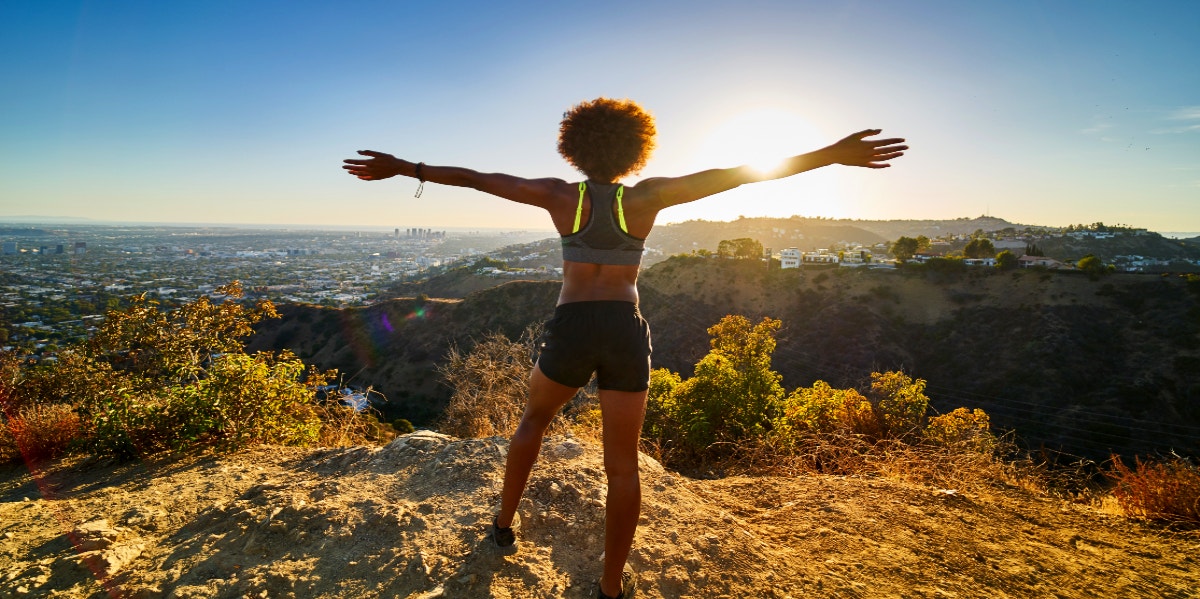
Addressing climate change means addressing racism.
By Alice Kelly — Written on Jul 08, 2020
Photo: joshua resnick / shutterstock.com

Racism poses a very real and immediate threat to the safety of people of color. Police are murdering Black people in the streets, Latinx communities are dying from coronavirus at alarming rates, and an economic downturn is risking the incomes and livelihoods of non-whites.
But these inequalities are part of a wider, deeper system that oppresses people of color. A system in which climate change plays a significant role.
Climate change, just like our legal system, healthcare, and economy, is racist.
Environmental racism, the disproportionate exposure to climate change that people of color experience, is a slower, more insidious form of violence against communities of color.
RELATED: 3 Ways Coronavirus Is Destroying The Environment & Impacting Climate Change
While its effects are less explicit than police brutality or crime, it is just as deadly.
We live in a society that thrives on interconnected systems of oppression and we cannot address one without addressing them all.
Toxicity, pollution, and hazardous waste destroy communities of color, while white people live in safety.
A study partially funded by the Environmental Protection Agency (EPA) found that Black and Latino people experienced a 37 percent higher rate of exposure compared with white people. This leaves these communities vulnerable to more health risks.
The same study also states that about 5,000 premature deaths from heart disease in 2010 would have been prevented if people of color breathed in the same level of pollution as white people.
This environmental racism was first exposed in 1983 when a study found that three-quarters of hazardous waste landfill sites in eight southeastern states were located in poor, Black and Latinx communities. Yet the effects continue almost 6 decades later.
Air pollution has caused a sharp increase in asthma and other respiratory diseases among Black and brown communities in recent years.
Climate change is just another of the many chokeholds victimizing people of color. “I can’t breathe” is as much a protest against climate change as it is against police brutality.
RELATED: Dear White People: Yes, You Can Be Broke *And* Privileged
On the frontlines of climate change, indigenous communities are being displaced and discriminated against by racist policies that favor economic gain over human life. At the site of Dakota Access Pipeline, the Standing Rock Sioux Tribe have had their homes and culture destroyed by the 1,172 mile-long pipeline.
The pipeline, if it overflows, risks disrupting burial grounds and sacred sites belonging to the indigenous community and polluting the Missouri River, a water supply relied upon by millions. All so America can extract one of the main contributors to climate change and continue destroying the environment.
At the height of the 2016 protests, the debate grasped international attention, garnering support from tribal nations from Norway and Ecuador. The world watched as we let down our indigenous community once again.
The problem is just a great outside of the U.S. as climate displacement ravages the Global South.
The divide is clear: powerful white people cause climate change, and underprivileged people of color experience the impacts.
The Global South contains 157 of the 184 recognized states in the world, yet traditional global power is controlled by the nations in the Global North: North America, Europe, Australia, New Zealand, and industrialized parts of Asia.
All of the members of G8, a council that creates global initiatives for climate action, healthcare, justice, and economic development, are countries in the Global North. These countries are also some of the largest contributors to CO2 emissions.
Yet these countries remain unaffected by climate change in comparison to their southern counterparts.
RELATED: Separate And Unequal: Why We Need To Defund The Police And Invest In Black Communities
In Bangladesh, rising sea levels and extreme weather have caused an increase of floods, cyclones and natural disasters that displace an average of 700,000 Bangladeshis each year.
Tuvalu, an island nation in the Pacific Ocean, will not exist in the next 50 years if sea levels continue to rise. Its inhabitants are forced to leave their home nation or risk flooding. These people are among the millions of climate refugees being directly impacted by harmful human activity.
The nations and people with the wealth and power to end climate change are the ones who can afford to ignore it, exposing the racism that lies at the core of the climate crisis.
But it goes much deeper than this. We are a society built on exploitation.
Related Stories From YourTango:
Whether it’s exploiting land, natural resources, or humans, people of color are the greatest victims. Climate change is part of the legacy of colonialism that made land into a commodity and humans into slaves in order to achieve economic gain for white empires.
Compared to the white man’s dollar of earnings in the U.S., Latina women earn 54 cents, Black women earn 64 cents, and Native American women earn 65 cents. Our economic system is designed to minimize labor costs and maximize profits, leaving people of color struggling to advance themselves in a society that does not prioritize them.
Surviving climate change requires a dismantling of systemic racism and the rebuilding of a decarbonized, egalitarian economy in which no one suffers because of their race.
Climate action and anti-racism are intertwined. The exploitation of people of color is causing catastrophic effects on our environment and on human lives.
RELATED: 40 Best Environmental Quotes To Inspire You To Help Save The Planet
Alice Kelly is a writer with a passion for lifestyle, entertainment, and trending topics.
